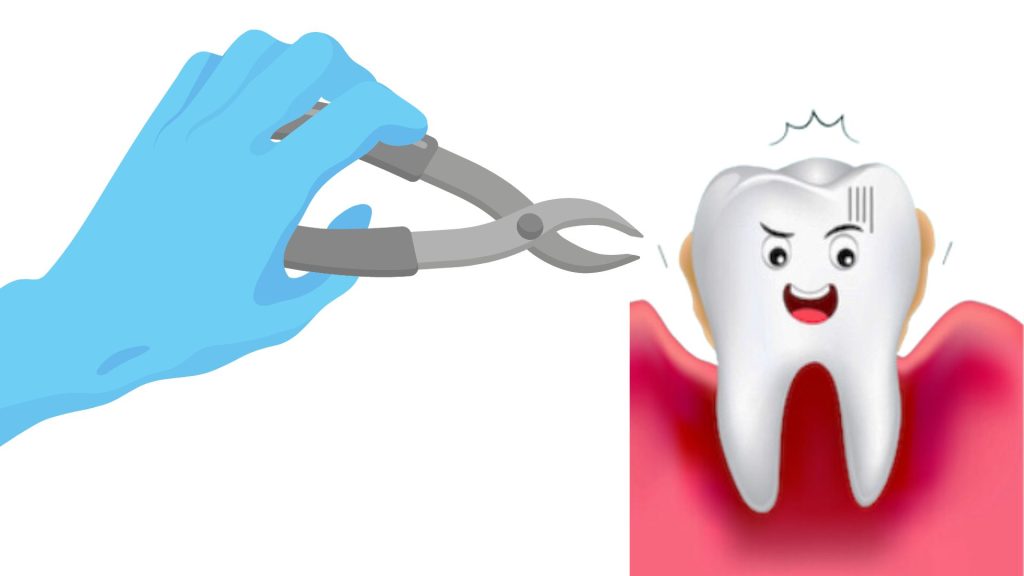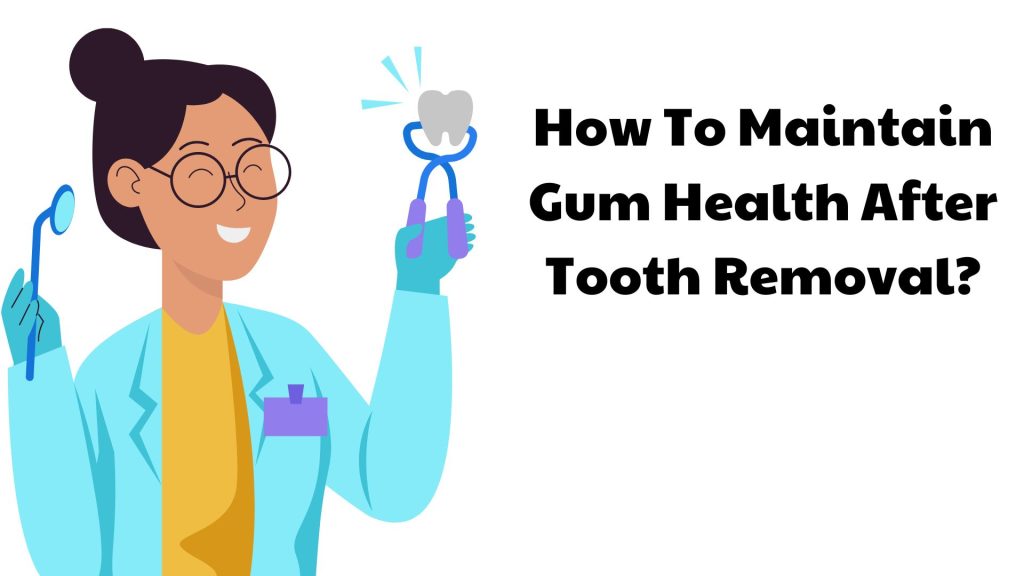Does gum disease go away when teeth are removed? However, the answer isn’t “yes” or “no”. Gum disease is complicated and cannot be treated by tooth extraction alone. To learn more about this condition, we need to look at how gum disease and pulling a tooth affect each other, as well as what the right treatment and care are. We’ll explore gum disease causes, whether tooth extraction may cure it, and how to have your teeth extracted in this post.
Does Gum Disease Go Away When Teeth Are Removed?


Tooth removal can help control gum disease and relieve symptoms, but it doesn’t mean the disease will go away totally. Extractions are a way to get rid of teeth that have been badly hurt by gum disease, such as teeth that have become loose or are badly broken. Tooth extraction may help alleviate infection and irritation, speeding recuperation. However, there is no assurance that gum disease will be cured when a tooth is removed. The rest of the gums and teeth still need proper care to stop gum disease from coming back or getting worse. So, consult a dentist for an informed response and to establish the effect of extractions on your gum condition.
Gum Disease Before & After Tooth Extraction
In dentistry, gum disease may cause pain and major oral health issues. When gum disease has gotten bad enough to be worrying, it may be necessary to take out a tooth as a treatment. However, would tooth extraction totally cure gum disease, and what will the gums look like afterward?
Pre-Extraction Gums
Before the tooth was pulled, the gums already had gum disease, which caused painful symptoms like inflammation, swelling of the gums, bleeding, and loss of jaw bone. In this scenario, tooth removal may eliminate infection and inflammation from the injured tooth, reducing symptoms and gum disease.
However, tooth extraction should not be regarded as a stand-alone therapy. Gum disease needs to be managed and cared for even after a tooth is taken out to keep it from coming back or getting worse.
Post-Extraction Gums
Since the gum area is empty after a tooth is pulled, the risk of infection and pain is greatly lessened. However, other gum regions and surviving teeth remain at risk of gum disease. This shows how important good mouth care is, like brushing and flossing every day and going to the dentist regularly for checkups. Optimal. In certain circumstances, tooth extraction may cure gum disease. But managing and taking care of gum disease is a constant process that needs proper care.
So, following your dentist’s advice and using the correct oral care products will help you avoid gum disease after tooth extraction.
Gum Disease Treatment And Management
Here are some of the many methods available for treating and controlling gum disease: Daily dental care:
- Brush properly.
- Use dental floss.
- Use mouthwash.
Intensive treatment:
- Professional teeth whitening: It helps clean and brighten teeth by removing plaque and debris.
- Scaling and root planning: Plaque removal and extensive cleaning of root surface grooves and crevices minimize microorganisms in this technique.
- Gum surgery: In severe instances of gum disease, gum surgery may remove diseased tissue and reconstruct soft tissue and bone.
Treatment drugs:
- Antibiotic bacteria.
- Antibacterial mouthwash.
How To Maintain Gum Health After Tooth Removal?


If you’ve had a tooth extracted, it’s vital that you take care of your gums so that you don’t get gum disease again. Some suggestions for keeping your gums healthy after a tooth has been pulled:
- Use a gum brush: Gingival brushes have stiff heads and plugs to clean the gums. Brush carefully around the remaining teeth.
- Use physiological saline: It rinses clean and reduces mouth irritation. Daily rinse with a teaspoon of non-iodized salt in a cup of warm water.
- Balanced Nutrition: To maintain gum health, eat nutrient-rich foods including fiber, vitamins, and minerals.
- Avoid tobacco and stimulants
- Dentists must continue gum disease treatment following tooth extraction. Regular gum checks and gum care instructions are crucial.
Conclusion
In conclusion, removing a damaged tooth’s source relieves pain and infection, but it’s not permanent. Gum disease is so intricate that treatment must include many specialists. Checkups at the dentist are essential for avoiding gum disease and keeping gums in good condition. At Spring Orchid Dental, we know that gum disease can hurt more than just your smile. Because of this, we try to make our building feel like a second home.
Also, we provide whitening, scaling and root planing, gum surgery, and dental check-ups to preserve healthy gums. So, visit our dental today to learn about innovative methods for gum disease treatment.
Make an appointment with us today to discover the best gum treatment solutions and become a pioneer in dental care.
FAQs
How Quickly Does Gum Disease Heal?
The degree of gum disease, the patient’s general health, the treatment’s efficacy, and their dental hygiene habits determine the healing duration. It’s crucial to remember that gum disease is chronic and needs continuing treatment. However, therapy and constant care may lead to improvements. The gums may recover fast from gingivitis, the mildest gum disease. With frequent brushing and flossing and expert dental cleanings to eliminate plaque and tartar, the gums may recover within a few weeks.
However, periodontitis, which causes irreparable gum and bone damage, may take longer to recover. Healing takes weeks to months.
Do Dental Implants Help Gum Disease?
Although dental implants are not a treatment for gum disease per se, they may assist improve the condition of the gums and the mouth as a whole. Some considerations are as follows:
- Replacing Lost Teeth: Dentures replace lost teeth without relying on nearby teeth. Plaque and germs may build in the empty area left by a missing tooth, promoting gum disease. Dentures cover the gap, preventing plaque and bacteria formation.
- Fixed support for tooth structure: Dental implants permanently anchor the mouth to the jawbone. This reduces tooth mobility and makes dental hygiene easier.
How Late Is Too Late For Gum Disease?
It is never too late to treat gum disease, but it is ideal to do it as soon as possible. Gum disease has the ability to weaken the bone that supports teeth and the gums over time. It is never too late to begin caring for your teeth and gums.





